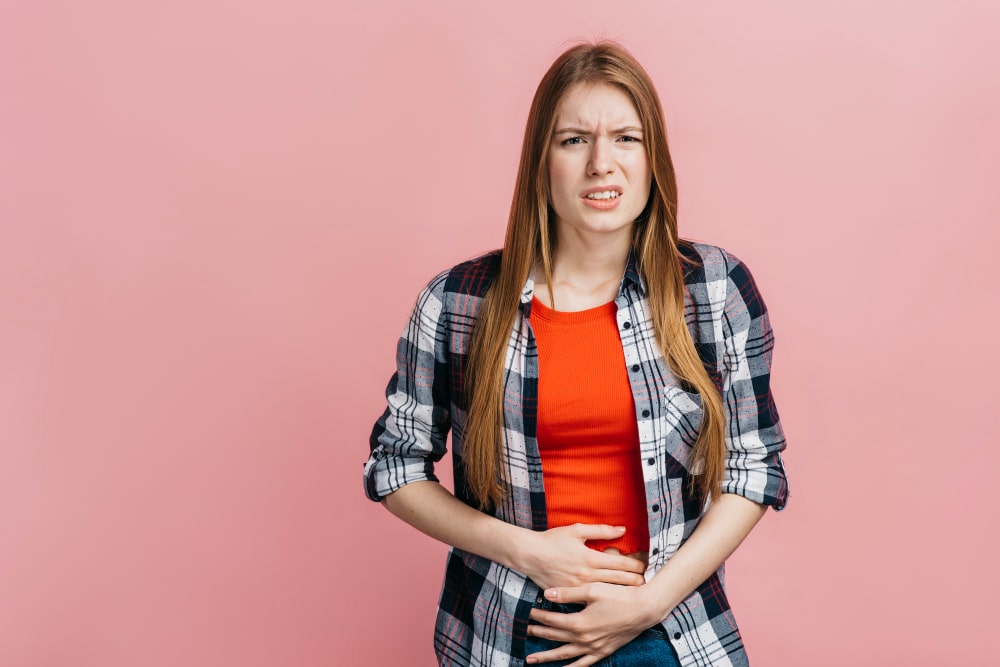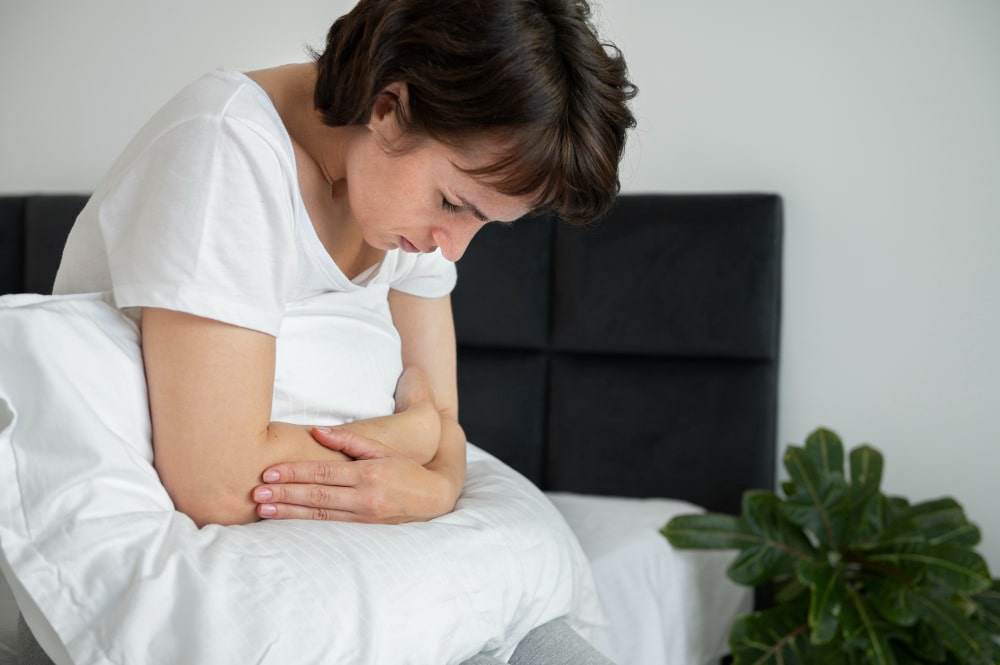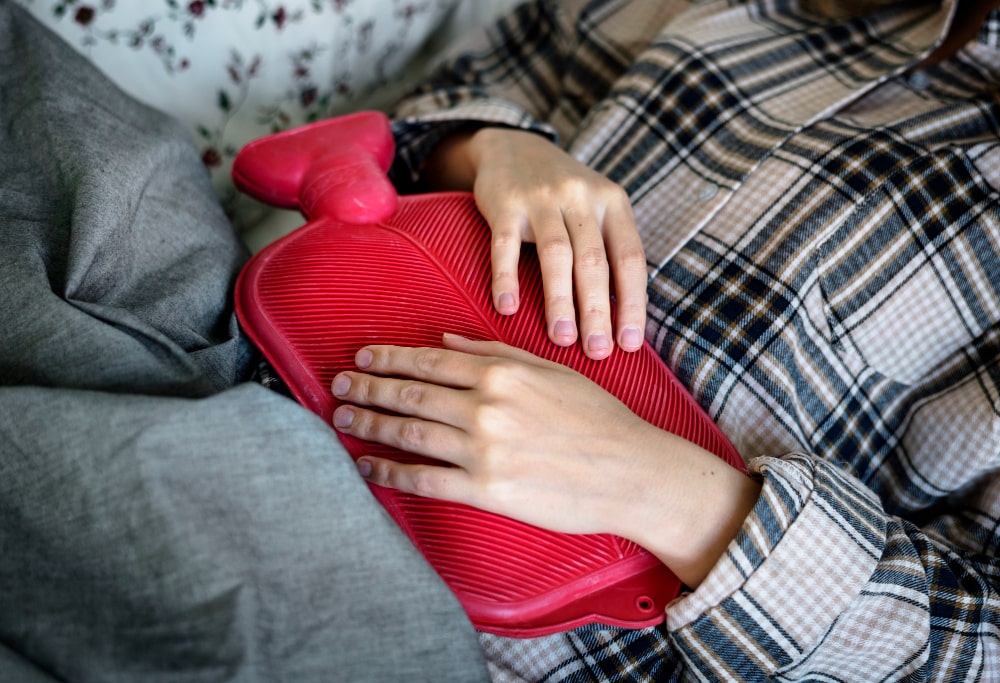Yeast infections are caused by an overgrowth of yeast, typically the fungus Candida albicans. Women have a higher chance of developing a yeast infection due to their varying hormonal levels throughout the menstrual cycle. During menstruation, hormones such as progesterone and estrogen fluctuate, which can increase pH levels in the body and lead to candida overgrowth. This article will look at the link between yeast infection and menstruation while on period, its symptoms, diagnosis, treatments and preventive measures to help you manage your infection.
Understanding Yeast Infections
What is Candida albicans?
Candida albicans (C.albicans) is a type of fungus that belongs to the Candida species. It is commonly found in small amounts on the skin, mouth, intestines and vagina. Although not usually harmful when present in small quantities, an overgrowth of C.albicans can cause a wide range of symptoms such as itching, burning and thick white discharge from the vagina.
Factors contributing to yeast infection
Factors that can increase the risk of Candida overgrowth include taking antibiotics, having a weakened immune system, hormonal fluctuations during menstruation, diabetes and clothing made from synthetic materials (such as nylon). Additionally, poor hygiene or sexual practices could also contribute to this condition.

Read More: Can a Yeast Infection Cause a UTI ? How to Treat It
Yeast Infections and Menstruation
How menstrual cycles affect yeast infections
During menstruation, hormonal shifts in the body can cause an imbalance of pH levels in the vagina, leading to a favourable environment for Candida growth. As the hormone progesterone increases during this time, it reduces acidity and promotes bacteria growth. This bacterial imbalance can cause discomfort and lead to a yeast infection.
The perplexity of yeast infection during periods
Yeast infections can be difficult to diagnose while on your period due to similar symptoms, such as pain and itching. Furthermore, menstrual blood may interfere with diagnostic tests that doctors use to identify Candida overgrowth in the body, including swabbing and culturing.
Symptoms of Yeast Infection During Menstruation
Identifying the signs
Typical symptoms of a yeast infection while on your period include itching, burning, swelling and irritation in the vaginal area. Other common indicators are white or yellow discharge from the vagina, pain during sex and a strong smell from the affected area.
Dealing with burstiness of symptoms
It is important to note that some women may experience a sudden flare-up of symptoms during their period, which can be due to hormonal changes in the body as well as the presence of menstrual blood. If you experience such an increase in your symptoms, it recommends that you speak to your doctor for further advice.

Read More: Sciatic Nerve Pain Relief at Night: How to Relief It?
Diagnosing Yeast Infections
Consulting a healthcare professional
Suppose you have a yeast infection while on your period. It is important to consult with a healthcare professional as soon as possible. Your doctor can help to diagnose the condition and provide appropriate treatment accurately.
Importance of accurate diagnosis
An accurate diagnosis is essential to provide the best treatment for your condition. Your doctor may conduct a pelvic exam, swab test or urine test to diagnose a yeast infection and rule out other underlying conditions.
Preventing Yeast Infections While on Period
Personal hygiene tips
Good personal hygiene is important in preventing yeast infections while on your period. Wearing breathable cotton underwear, avoiding tight clothes and changing pads or tampons often can help to reduce the risk of infection. Additionally, wiping from front to back after using the toilet and avoiding douches or scented sprays recommends.
Dietary and lifestyle factors
Making healthy lifestyle choices is also important to help reduce the risk of yeast infections. Eating a balanced diet, avoiding sugary foods, limiting stress levels and getting enough sleep can all help to maintain a healthy balance of vaginal bacteria in your body. Additionally, drinking plenty of water helps to flush out toxins and keep your body hydrated.
Read More: Can a Sinus Infection Make You Dizzy? A Complete Guideness
Treatment Options for Yeast Infections
Medications
Your doctor may recommend medications such as topical creams, ointments or pills to help treat a yeast infection while on your period. If you are prescribed antibiotics, it is important to finish the course of medication as instructed by your doctor.
Home remedies
Home remedies such as garlic, tea tree oil and apple cider vinegar may also recommend to reduce the symptoms of a yeast infection while on your period. However, it is important to note that these natural treatments are not always effective and should not replace professional medical advice.
Medical Treatment for Yeast Infections
Antifungal medications
If home remedies are not providing relief, your doctor may recommend antifungal medications. Antifungals can help to reduce the symptoms of a yeast infection while on your period and stop the growth of Candida in the body.
Hormonal treatments
Your doctor may also suggest hormonal treatments such as birth control pills or creams to help regulate your hormones and prevent further yeast infections. These medications are usually prescribed for a short period to restore the balance of bacteria in the vagina.
Read More: Nerve Pain in Shoulder: What Causes It, How to Treat It?
Understanding the role of antibiotics
Antibiotics can also play a role in the development and treatment of yeast infections. While antibiotics can treat bacterial infections, they may also lead to an overgrowth of Candida due to their ability to kill off beneficial bacteria in the body. If you have been prescribed antibiotics, talking with your doctor about ways to reduce your risk of developing a yeast infection while taking them is important. Additionally, your doctor may recommend using probiotics to help restore the balance of bacteria in the body and reduce the risk of further yeast infections.
It is also important to remember that if you have diabetes or are immuno compromised. You may be at an increased risk of developing a yeast infection.
Yeast Infections and Sexual Intercourse
Avoiding sexual intercourse
It is important to note that it can be difficult to diagnose a yeast infection while on your period, and some women may experience increased symptoms due to menstrual blood. For this reason, it is recommended that you avoid having sexual intercourse during this time. It could worsen the condition or cause further complications.
Communicating with your partner
If you are in a relationship, it is also important to communicate with your partner about the condition and explain that there is no need to worry as long as proper precautions are taken. Additionally, it recommends that both partners get tests for STIs before engaging in sexual activity again.
Read More: Groin Pain When Walking: What Causes It, How to Treat It?
Conclusion
Yeast infections while on your period are common. However, it is important to speak to a healthcare professional to get an accurate diagnosis and receive appropriate treatment. Taking measures such as practising good hygiene, eating a balanced diet, avoiding sexual intercourse and communicating with your partner can help to reduce symptoms and prevent the further spread of the infection. With the right care, you can return to feeling your best in no time.

